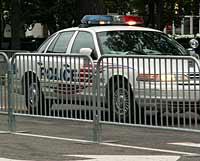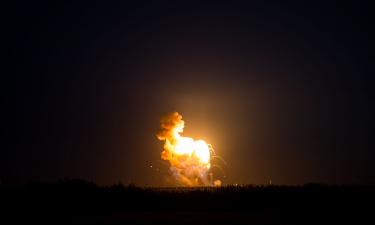Police of India say one of Kashmir's most feared press manhunt for those behind bombings in holy city
Indian investigators believe one of Kashmir 's most notorious Islamic militant groups planted bombs that killed 20 people at a temple and train station in Hinduism's holiest city, police said Friday.

A senior police official also said that a Kashmiri militant killed by officers in northern India hours after Tuesday's bombings was suspected of masterminding the attack on a temple and train station in Varanasi , a city famed for its shrines on the banks of the Ganges River .
The dead man identified only as Salim ran the operations of Lashkar-e-Tayyaba, Kashmir 's best know militant group, in the state of Uttar Pradesh, where Varanasi is located, said Yashpal Singh, the state's top officer.
"Now we are trying to find out the places he has been and with who he was in contact," Singh told The Associated Press.
A previously unknown Kashmiri group has taken credit for the bombings. But Singh said there were "strong indications" the attack was the work of Lashkar, the best known militant group fighting to wrest predominantly Muslim Kashmir from largely Hindu India.
"The type of explosives used, the way the blasts were timed together, the place of the blasts these are all hallmarks of Lashkar," he said.
The group has been blamed for a number of attacks outside Kashmir , including Oct. 29 bombings at New Delhi markets and on a bus that killed 60 people just days before a major Hindu festival.
New Delhi has long struggled to contain an Islamic insurgency in Kashmir , a Himalayan land split between India and Pakistan and claimed by both.
The authorities' assertion that the bombings were the handiwork of Lashkar until now only hinted at could bolster Indian complaints that Pakistan is doing little to control Kashmiri militant groups based in its territory. Pakistan denies the allegation.
Authorities, meanwhile, pressed their manhunt for two suspects, handing out sketches of the men in Uttar Pradesh and other parts of India , said Navneet Sikera, a top police officer in Varanasi .
Singh said police were offering a 100,000 rupees (US$2,250; 1,900 euros) reward for information leading to the arrest of suspects involved in the attack.
The sketches were drawn from the statements of witnesses who claim to have seen the men at a market planting a bomb that failed to detonate and was later defused by police.
The witnesses also reported hearing the suspects, both men in their late 20s, speaking a dialect from the border region with Pakistan .
Soldiers and police maintained a heavy presence in Varanasi on Friday, but the bustling street life was back in the city, among the world's oldest and a site where millions of Hindu pilgrims gather annually for ritual bathing and prayers on the banks of the Ganges .
On Friday, hundreds of Buddhist monks, holding candles and oil lamps, walked three times around the temple and prayed for the souls of the blast victims. The monks were from a Tibetan monastery on the outskirts of Varanasi .
While the bombings were for many in India a bloody reminder of hundreds of years of tension and violence between South Asia 's Hindus and Muslims, some 100 traders and shop owners both Hindus and Muslims conducted a candle light procession Thursday night through crowded markets, urging residents to keep calm.
"There are groups trying to instigate people. We don't want any violence," said Ahmed Ali, a garment trader.
More than 80 percent of India's billion people are Hindu and relations between them and Muslims, the country's largest religious minority, have been largely peaceful since the partition of the subcontinent at independence from Britain in 1947, when more than 1 million people were killed as overwhelmingly Muslim Pakistan was carved from largely Hindu India.
But there have been sporadic bouts of savage violence, often sparked by attacks on temples or mosques, reports the AP.
D.M.
Subscribe to Pravda.Ru Telegram channel, Facebook, RSS!





